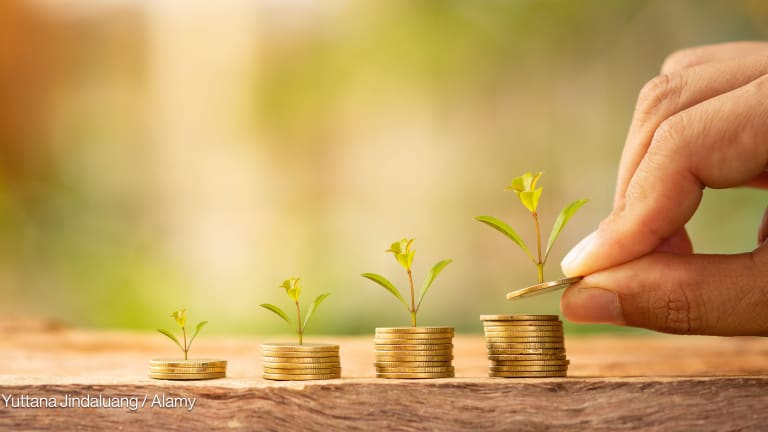
NEW YORK — Former United States Vice President Al Gore struck an optimistic tone on Tuesday as he posed three questions on climate change action: Must we change, can we change, and will we change? The answer to all three was a definitive — and necessary — “yes,” Gore told a room of investors and climate change experts at the FT Climate Finance Summit.
Changing investment practices offer some hope to mitigate and adapt to climate change’s effects by fully integrating sustainability approaches. This is increasingly seen as a the smart option, explained Gore, the co-founder of the sustainable research and investment firm Generation Investment Management.
“There is an increasing sense the way capitalism operates is overdue for a more careful examination and in the investing world there is a very powerful movement,” Gore said. “The integration of sustainability into the investing process is very difficult, but it can be done and it can be done quite successfully in ways that do not require trading of value for values.”
Signs of change are evident everywhere from the U.S. labor market — where the fastest growing occupations are solar installers and wind turbine service technicians — to Norway, where the world’s sovereign wealth fund is considering divesting entirely from oil and gas companies, Gore said.
“What we are seeing in the world today — I am convinced — are the early stages of a sustainability revolution that has the magnitude of the industrial revolution, but the speed of the digital revolution,” Gore said. “It is as disruptive as we saw with the digital revolution’s effect on a wide sector of the economy … and it is transforming the global economy at warp speed.”
Academic evidence increasingly shows that full integration of sustainability actually produces returns, Gore explained.
“We have assumed for 150 years that the natural systems of the planet are capable of infinite regeneration and can absorb whatever insults we hurl its way,” Gore said at the New York conference. “We humans are now the largest force of nature, and as a consequence we are now seeing a re-examination of how this collision might be mitigated, how we can change this collision and avoid the harsh consequences.”
Gore detailed some of the myriad impacts climate change will continue to inflict.
Seventeen of the 18 hottest years ever recovered have occurred since 2001 — and the four hottest have been tracked within the last four years. Super storms and hurricanes hitting places like New York — which experienced Hurricane Sandy, a 1 in 500 year event, in 2012 — will become 1 in 5 year events by mid-century. And half of the world’s species could become extinct by the end of the century, Gore said.
Climate-smart investing is also seen as an important factor in making gains on reducing global poverty, according to the World Bank. The financial impact of natural disasters in 117 countries is equivalent to $520 billion loss in annual consumption, and forces 26 million people into poverty annually.
In September, the World Bank — which estimated in 2015 that 28 percent of its lending would be linked to climate investments by 2020 — and the United Nations jointly announced plans for a new climate platform. “Invest4Climate” is aimed at connecting different partners and helping governments identify smart climate projects and reduce risks, as Devex reported.
It could cost developing countries between $300 to $500 billion annually by 2050 to reduce their greenhouse gas emissions and adapt to climate change.
Changing policies and politics could affect the “pace of change,” but the direction towards sustainable solutions is “undeniable,” Gore said. Previous concern of the U.S. withdrawing from the 2015 Paris Agreement on climate change was not fully warranted, he explained, as every other country reaffirmed or “doubled down” on their commitments. And regardless of Trump’s plans, the U.S. is still on track to meet or exceed its Paris commitment to dramatically reduce emissions by 2025.
“This is an an existential threat to human civilization. Indeed, we can and we are changing. We are not changing fast enough, but because of the sustainability revolution this change is accelerating,” Gore said. “The markets are saying yes and governments in Paris made a truly historic change, signaling the direction of travel can hardly be overstated.”








